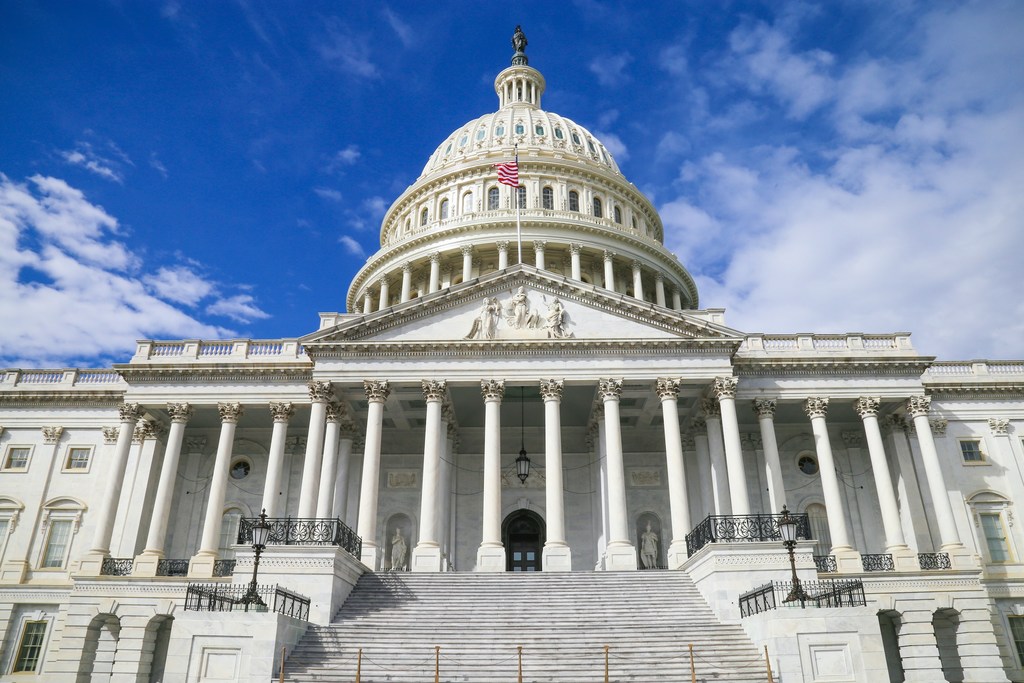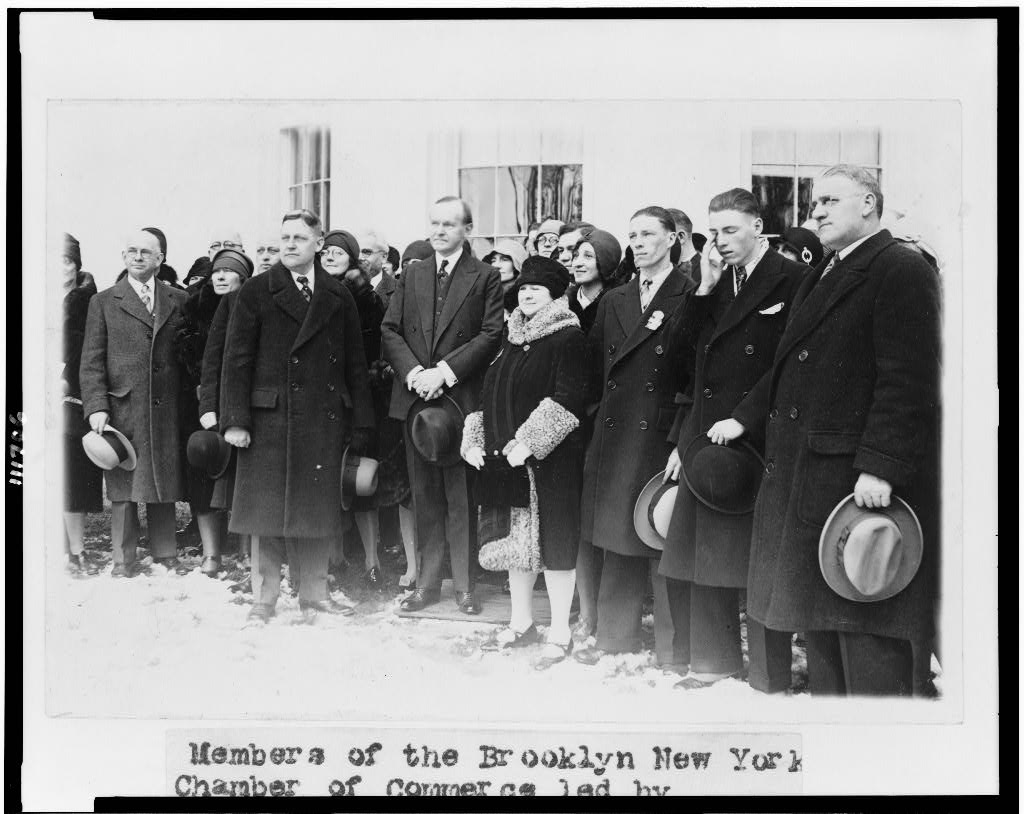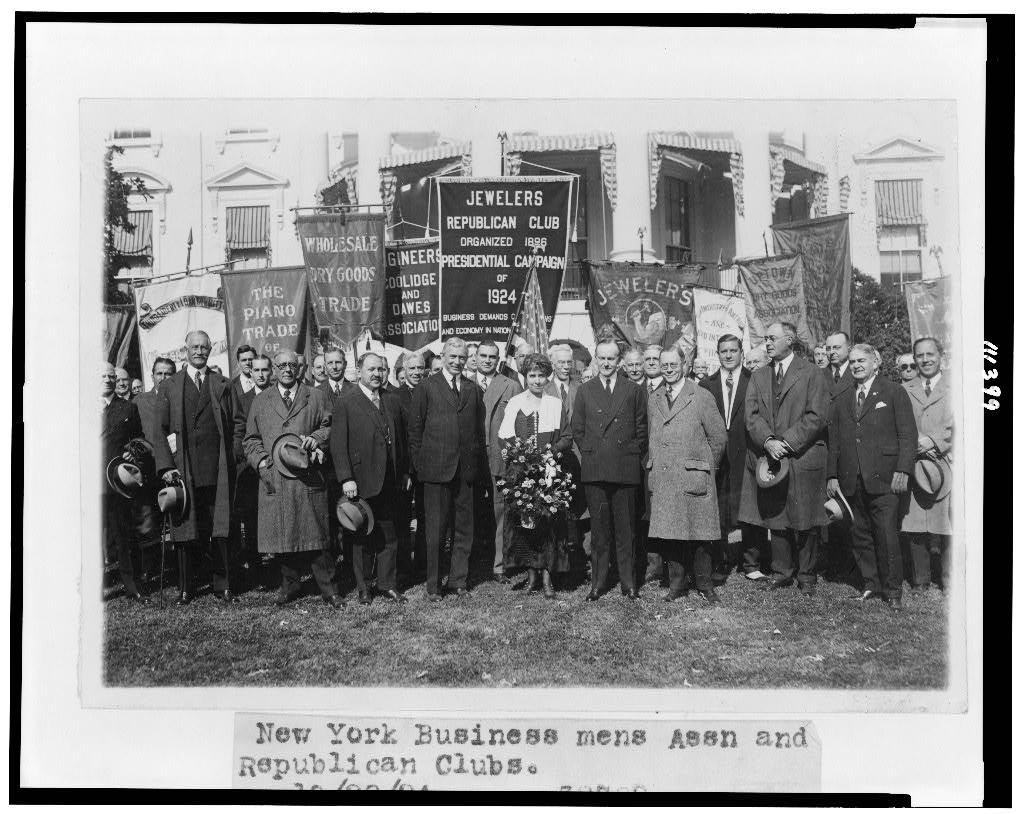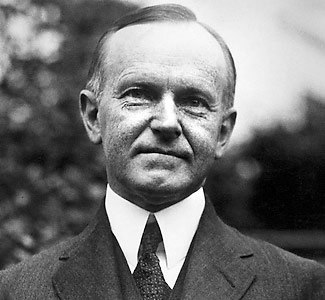

If any one wishes to gauge the power which is represented by the genius of the American spirit, let him contemplate the wonders which have been wrought in this region in the short space of 200 years. Not only does it stand unequaled by any other place on earth, but it is impossible to conceive of any other place where it could be equaled…
When we contemplate the enormous power, autocratic and uncontrolled, which would have been created by joining the authority of government with the influence of business, we can better appreciate the wisdom of the fathers in their wise dispensation which made Washington the political center of the country and left New York to develop into its business center. They wrought mightily for freedom…
While I have spoken of what I believed would be the advantages of a more sympathetic understanding, I should put an even stronger emphasis on the desirability of the largest possible independence between government and business. Each ought to be sovereign in its own sphere. When government comes unduly under the influence of business, the tendency is to develop an administration which closes the door of opportunity; becomes narrow and selfish in its outlook, and results in an oligarchy. When government enters the field of business with its great resources, it has a tendency to extravagance and inefficiency, but, having the power to crush all competitors, likewise closes the door of opportunity and results in monopoly.
It is always a problem in a republic to maintain on the one side that efficiency which comes only from trained and skillful management without running into fossilization and autocracy, and to maintain on the other that equality of opportunity which is the result of political and economic liberty without running into dissolution and anarchy…
When I have been referring to business, I have used the word in its all-inclusive sense to denote alike the employer and employee, the production of agriculture and industry, the distribution of transportation and commerce, and the service of finance and banking. It is the work of world. In modern life, with all its intricacies, business has come to hold a very dominant position in the thoughts of all enlightened peoples. Rightly understood, this is not a criticism, but a compliment. In its great economic organization it does not represent, as some have hastily concluded, a mere desire to minister to selfishness…

It is something far more important than a sordid desire for gain. It could not successively succeed on that basis. It is dominated by a more worthy impulse; it rests on a higher law. True business represents the mutual organized effort of society to minister to the economic requirements of civilization. It is an effort by which men provide for the material needs of each other. While it is not an end in itself, it is the important means for the attainment of a supreme end. It rests squarely on the law of service. It has for its main reliance truth and faith and justice. In its larger sense it is one of the greatest contributing forces to the moral and spiritual advancement of the race.
…[T]he important and righteous position that business holds…is not exercised as has been the autocratic practice abroad of directly supporting and financing different business projects, except in case of great emergency; but we have rather held to a democratic policy of cherishing the general structure of business while holding its avenues open to the widest competition, it order that its that its opportunities and its benefits might be given the broadest possible participation…
While it is true that the Government ought not to be and is not committed to certain methods of acquisition which, while partaking of the nature of unfair practices, try to masquerade under the guise of business, the Government is and ought to be thoroughly committed to every endeavor of production and distribution which is entitled to be designated as true business…We are a politically free people and must be an economically free people…
It is notorious that where the government is bad, business is bad. The mere fundamental precepts of the administration of justice, the providing of order and security, are priceless. The prime element in the value of all property is the knowledge that its peaceful enjoyment will be publicly defended…
Regulation has often become restriction, and inspection has too frequently been little less than obstruction. This was the natural result of those times in the past when there were practices in business which warranted severe disapprobation. It was only natural that when these abuses were reformed by an aroused public opinion a great deal of prejudice which ought to have been discriminating and directed only at certain evil practices came to include almost the whole domain of business, especially where it had been gathered into large units. After the abuses had been discontinued the prejudice remained to produce a large amount of legislation, which, however well meant in its application to trade, undoubtedly hampered but did not improve…

Everyone knows that it was our resources that saved Europe from a complete collapse immediately following the armistice…Others did what they could, and no doubt made larger proportionate sacrifices, but it was the credits and food which we supplied that saved the situation…No positive and constructive accomplishment of the past five years compared with the support which America has contributed to the financial stability of the world…
Peace, we know, rests to a great extent upon justice, but it is very difficult for the public mind to divorce justice from economic opportunity. The problem for which we have been attempting a solution is in the first instance to place the people of the earth back into avenues of profitable employment. It was necessary to restore hope, to renew courage. A great contribution to this end has been made with American money. The work is not all done yet. No doubt it will develop that this has not been accomplished without some mistakes, but the important fact remains that when the world needed to be revived we did respond…The financial strength of America has contributed to the spiritual restoration of the world. It has risen into the domain of true business…
America must either perform her full share in the accomplishment of this great world destiny or fail. For almost three centuries we were intent upon our domestic development. We sought the help of the people and the wealth of other lands by which to increase our numerical strength and augment our national fortune. We have grown exceedingly great in population and in riches. This power and this prosperity we can continue for ourselves if we will but proceed with moderation. If our people will but use those resources which have been entrusted to them, whether of command over large numbers of men or of command over large investments of capital, not selfishly but generously, not to exploit others but to serve others, there will be no doubt of an increasing production and distribution of wealth…
If it is to have any continuing success, or any permanent value, it will be because it has not been brought about by one will compelling another by force, but has resulted from men reasoning together. It has sought to remove compulsion from the business life of the country and from our relationship with other nations. It has sought to bestow a greater freedom upon our own people and upon the people of the world. We have worshiped the ideals of force long enough. We have turned to worship at the true shrine of understanding and reason…
We can not listen to the counsels of perfection; we can not pursue a timorous policy; we can not avoid the obligations of a common humanity. We must meet our perils; we must encounter our dangers; we must make our sacrifices; or history will recount that the works of [George] Washington have failed. I do not believe the future is to be dismayed by that record. The truth and faith and justice of the ancient days have not departed from us.
–Excerpts from President Coolidge’s speech on “Government and Business,” November 19, 1925
